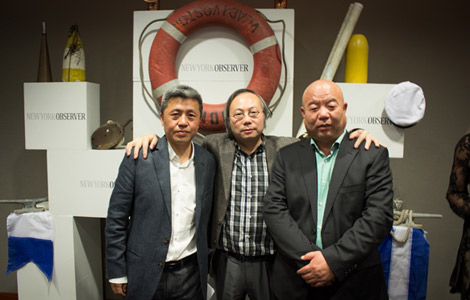Imbalances, risks pose challenges for China-Latin America trade, report says
Updated: 2014-05-12 04:18
By YANG ZIMAN in Beijing (China Daily Latin America)
|
|||||||||
Trade between China and Latin America faces challenges of unbalanced trade structure, investment risks, political instability and competition from other countries, according to the Yellow Book of Latin America and the Caribbean (2013-2014) published in April by the Chinese Academy of Social Sciences.
Latin America heavily depends upon primary commodities and resource products such as copper, iron ore, steel, and soybeans in its exports to China, said the report.
Prices of these materials in a raw or unprocessed state are highly volatile. Exporting countries have to cope with large fluctuations that can cause substantial contractions in output.
"Much of the trade, investment, and loans from the China have been focused on the countries, companies, and infrastructure that underpin the extraction of natural resources and other commodities in the region," wrote Sebastian Sarmiento-Saher, an editorial assistant at The Diplomat, a current-affairs magazine for the Asia-Pacific region.
"This has raised questions about Latin American dependence on resource exports and the specter of 'Dutch disease'. "Dutch disease refers to the phenomenon that an increase in revenues from natural resources will make a given nation's currency stronger, resulting in the nation's other exports becoming more expensive and making the manufacturing sector less competitive.
On the other hand, China's exports to Latin America consist mostly of finished products with growth in high-tech products, according to the report. Chinese banks, automakers and mechanical manufacturers are settling in the region. Such influx has generated conflicts with a number of industrialized countries in Latin America.
In 2010, Latin American countries restricted China's exports to the region through various trade remedies including anti-dumping investigations, imposing temporary minimum prices, and charging anti-dumping tariffs. By May 2010, Argentina had lodged 10 cases against China; Brazil brought seven cases; and Mexico and Colombia lodged one each.
Investment comes with risks, warned the report. Institutional protection mechanisms are yet to be improved, because China-Latin America cooperation is still in its infant stage.
Chinese companies have met challenges in their mining expansion endeavors in Latin America, both in purchasing mining rights and in exploitation afterward, said Robert Evan Ellis, an analyst of Latin American issues with a research focus on relationships with China, in Americas Quarterly magazine.
These companies also have faced management challenges in turning their investments into productive enterprises.
For instance, a number of high-profile China-Latin America collaborative projects have been blocked partly because of Latin America's protectionism. In 2010, the purchase of Pan American Energy from BP Plc by China National Offshore Oil Corp for $7.1 billion was not approved. In 2011, Wuhan Iron and Steel (Group) Corp gave up the $5 billion plan to jointly build factories with the Brazilian mining company MMX Mineracao e Metalicos.
Another challenge of China's partnership with Latin America is competition from other countries vying for opportunities in the region, said the report. The United States remains the leading influence on Latin America's politics and economy through multi-level cooperation mechanisms such as Summits of the Americas, the Inter-American Development Bank and the Organization of American States.
Additionally, the European Union signed the Santiago Declaration with the Community of Latin American and Caribbean States in 2013 to affirm the two parties' cooperation commitment.
Other Asian countries such as India, Japan and South Korea also have shown keen interest in developing closer ties with Latin America. Japan is eyeing opportunities in infrastructure, energy and telecommunication industries in the region. India and Brazil held a senior officials' meeting in 2013 to intensify their cooperation in such areas as energy, mining, automobiles and medicine. South Korea is also increasing its investment in Latin America's oil, natural gas, nuclear station and bio-fuel industries.
The report suggests that Chinese companies must strengthen their capacity to negotiate and communicate with their Latin American trading partners, improve their image as a responsible community member, and shape changes in Latin America's policies and investment environment. More important, the two sides need to establish investment protection mechanisms and sign free trade zone agreements so they can offer substantial solutions to conflicts and challenges.
yangziman@chinadaily.com.cn
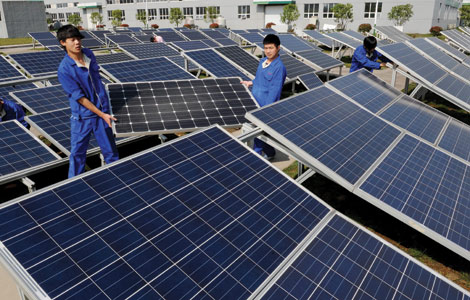
 Jinko ups solar footprint in Chile
Jinko ups solar footprint in Chile
 As World Cup tickets become available, it’s a seller’s market
As World Cup tickets become available, it’s a seller’s market
 More China FDI will not change Argentinean economy: expert
More China FDI will not change Argentinean economy: expert
 Yuesai Kan speaks at the Ellis Island gala
Yuesai Kan speaks at the Ellis Island gala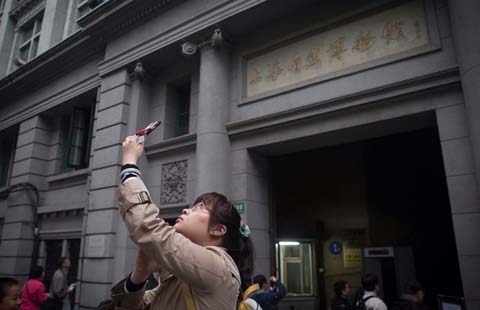
 Surge of visitors to Shanghai museum before relocation
Surge of visitors to Shanghai museum before relocation
 Mothers: Lifelong responsibility and unconditional love
Mothers: Lifelong responsibility and unconditional love
 Life's a whirl for top-flight acrobats
Life's a whirl for top-flight acrobats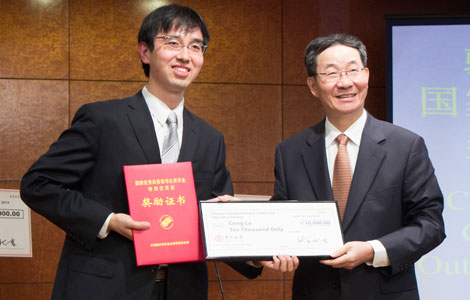
 Outstanding overseas students acquire rewards
Outstanding overseas students acquire rewards
Most Viewed
Editor's Picks

|

|
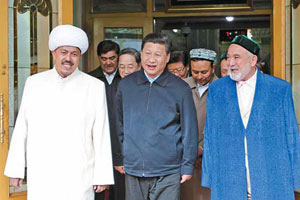
|

|

|

|
Today's Top News
9/11 remains returned to World Trade Center site
Drilling in Chinese waters: official
US regulator will hear appeal on 'Big 4' Chinese affiliates
No recognition of eastern Ukrain referendums - US
Michelle Obama slams kidnapping of Nigerian girls
Two dead, one missing in Virginia hot air balloon fire
China: Stop harassing oil rig in Xisha Islands
Former Time Warner chief named Clippers' interim CEO
US Weekly

|

|
